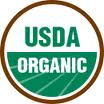 What ISN’T in organic food is just as important as what IS in organic food!
What ISN’T in organic food is just as important as what IS in organic food!
Setting aside the debate for a moment of whether organic foods have higher levels of nutrition content, whether they do or not is not nearly as impactful on health as consuming the toxic chemicals, drugs, hormones, etc. used to grow conventional crops and factory-farmed livestock. There is mounting evidence that exposure to these chemicals may actually have a CAUSAL relationship to diabetes.
In a Finnish study released in August 2011, exposure to Persistent Organic Pollutants (POP’s) demonstrated up to double the risk of diabetes, depending on the levels of the POP’s in the blood. Led by Riika Airaksinen, MSC, the study found a strong connection between POP’s such as oxychlordane, PCB’s, organochlorines, and DDT with Type 2 diabetes, commonly known as adult-onset diabetes (1). A 2006 study found that persons with elevated levels of POP’s in their blood were up to 38 times more likely to be insulin resistant as those with the lowest levels (3).
Don’t let the word ‘organic’ in Persistent Organic Pollutants fool you—there is nothing safe about these poisons. The term POP indicates that the chemicals pollute the soil, air, and water, and persist for extended periods of time, because they are highly resistant to environmental biodegradation. Most commonly used as pesticides such as the aforementioned DDT and chlordane, POP’s also are used in the manufacture of plastics, solvents, PVC, and pharmaceuticals (2).
The truly scary reality in these findings is that most POP’s have been banned for over 20 years! Yet, because they continue to pollute the environment for decades and easily move around the earth by wind and rain, even countries that have banned their use are not seeing significant reductions in the amounts of POP’s, and other countries who never manufactured them in the first place are being bombarded (2).
POP’s have the ability to cross cell membranes and accumulate in the fatty tissue of animals, known as bioaccumulation. Those who ate the most meat of animals exposed to POP’s likely had the highest concentrations in their blood.
The rush to judgment with these findings is to limit the consumption of meats. Yet, the conventional researchers fail to realize that the farming methods producing the grains fed to livestock, as well as the typical unhealthy practices of factory farms, produce animals whose meat does not resemble the nutritional profile of those eating a natural diet as nature intended.
You are what you eat, ATE!
This is why it is so important to consume meats that come from animals raised on an organic natural diet, with plenty of fresh air and sunshine. Organic grass-fed beef, for example, contains far less fat than conventional beef, and those fats are rich in Omega-3 fatty acids and Conjugated Linoleic Acid (CLA)—as opposed to the artery-clogging saturated fat of grain-fed factory farm beef (4). Why is there such a huge difference? Simple—cattle are not meant to eat grains. A grain diet causes infection of the rumen, which leads to illness requiring large doses of antibiotics (5). Plus, the grains are vastly deficient in Omega-3’s. Sixty percent of the fatty acids in grass are Omega-3’s!
In poultry, seeing the term “All Vegetarian Diet” on packages of meats or eggs misleads consumers into thinking that is a healthy diet for poultry. It is NOT! Poultry are NOT vegetarian! They are OMNIVORES. Their natural diet is largely grass and greens, along with bugs, grubs, worms, and sometimes even small rodents and garden pests. Pastured poultry and their eggs are vastly superior in nutrition to caged, grain-fed birds (6).
Whether organic grass-fed meats are free from, or significantly lower in, POP’s than conventional meats is still unclear. An organic farmer may be doing everything humanly possible to ensure his animals are free from any pollutants, yet POP’s could be raining down on them, carried from a contaminated area many miles away. That is the tragedy of the massive use of POP’s in the early stages of their creation after World War II, when they were released into the environment without realizing the long-term consequences. However, since the organic farmer who raises their animals in a pastured setting does not directly apply any pesticides, and the meat itself is so much lower in fat, then it stands to reason that the risk of exposure is minimized. And the healthy Omega-3 fats and CLA in pastured meats help to boost the immune system and protect against diseases.
As always, consuming organic foods reduces many of the health risks associated with the pesticides, herbicides, hormones, and toxins applied to conventionally-raised foods. And more research is also pointing to a significant reduction in insulin resistance and the risk of developing diabetes. In honor of National Diabetes Month, invest in your health by enjoying foods the way that Nature intended!
Find sources of organic pastured foods near you here: Find Local Farms.
Comments
Powered by Facebook Comments

Connect with Us on These Sites